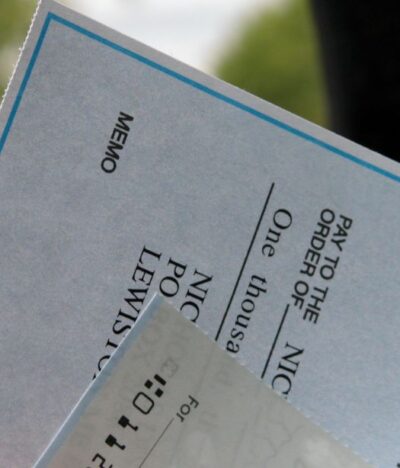A limited liability company (“LLC”) is a form of business entity available under the Florida Limited Liability Company Act. An LLC is controlled either by a Manager or by a Managing Member pursuant to the LLC “operating agreement.” Members hold their investment in an LLC in the form of membership interests.
Similar to S-Corporations and general partnerships, an LLC is a “flow through” entity such that only its members are liable for income tax. The business entity itself, unlike with C-Corporations, is not liable for income tax on its profits. Yet though similar in structure to a general partnership, an LLC enjoys limited liability for its “members” similar to corporate shareholders.
Subject to restrictions in the operating agreement of an LLC, a membership interest, being intangible property, is assignable and transferable. As such, though an individual member may not be liable for company debts, a member’s interest may be taken to satisfy a judgment against him – that is unless there is a statute that says otherwise. Florida has such a statute that until recently was less than clear.
In Florida, a judgment creditor was faced with Section 608.433, Florida Statutes, which allowed a judgment creditor to obtain a “charging order” against a judgment debtor’s LLC membership interest. A charging order only allows a creditor to receive LLC distributions normally payable to the member against whom there is the judgment. Of course, the LLC could always decide against distributions leaving the creditor empty handed.
What Section 608.433, Florida Statutes, did not expressly provide was the charging order as the ONLY remedy for judgment creditors.
The Supreme Court – Olmstead
The Florida Supreme Court’s decision in Olmstead v. Federal Trade Commission, 44 So. 3d 76 (Fla. 2010), interpreted the statute and Florida law to mean that in a Florida single-member LLC, a charging order is NOT the creditor’s exclusive remedy. The court ordered the judgment debtor to surrender all of his right, title, and interest in his LLC to the creditor to satisfy the judgment.
The widespread uncertainty created by Olmstead immediately got the attention of concerned business attorneys and their clients. Did the reasoning in Olmstead only apply to single-member LLCs or could it, and in any case would it, be used against multiple-member LLCs? The ruling appeared to most as contrary to Section 608.433 and the Florida Legislature’s intent.
Legislative Amendment – The Olmstead Patch
The legislature took action quickly and amended Section 608.433, Florida Statutes, which amendment became effective May 31, 2011, and is known as the Olmstead Patch.
The amendment expressly provides that a charging order is the exclusive remedy available to creditors seeking to enforce judgments using the interests of LLC members. This exclusive remedy applies in both single-member and multiple-member LLC contexts. However, and only in the case of single-member LLCs, if a creditor shows that charging order distributions will not satisfy the judgment in a reasonable time, a court may permit the foreclosure of the membership interest.
The amended statute does NOT address treating a multiple-member LLC as a single-member LLC where additional members are added with only nominal interests. This will no doubt be an area of future commercial litigation.
Benefits of Doing Business as a Limited Liability Company
LLCs are useful because they are flexible as to how membership interests can be held (by other business entities or trusts) without losing their flow through income tax treatment as would otherwise occur in the case of an S-Corporation.
LLCs are also useful for asset protection and with the Olmstead Patch, even more so. Compare the treatment of a membership interest in an LLC with the fact that shareholders’ stock certificates in corporations can be taken by a judgment creditor.
Where a charging order is obtained, the creditor must wait for profits to be distributed or distributions to be made upon closing a business run as an LLC. The LLC can meanwhile loan money to the debtor-member or pay a salary to him which, if head of household, is further given exempt treatment.
Meanwhile, a 1997 Revenue Ruling may create a tax liability for the creditor where distributions are not made, the creditor has a charging order, and profits are allocated to the debtor-member. The income tax liability on that member’s allocated income may need to be paid by the judgment creditor.
The Florida Department of State on its website reports there were almost 550,000 LLCs and 743,000 corporations in Florida by the end of 2010. LLCs are being increasingly utilized with over 138,000 Florida LLCs formed in 2010 to the approximate 104,000 Florida corporations formed.
As such, the LLC has become an increasingly important business structure in Florida.







